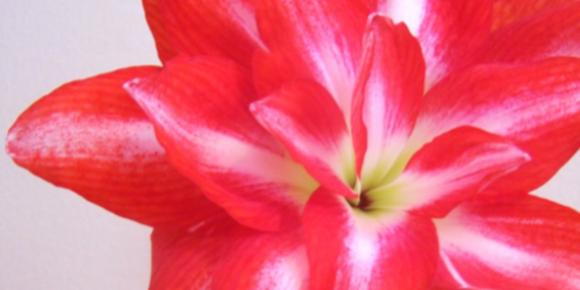
- posted: Dec. 20, 2018
Holiday plants are often a part of Christmas traditions, decorating our homes with their festive foliage or flowers. But before purchasing holiday plants, consider their toxicity to the pets in your home.
Several of the most popular plants are poisonous. Rarely a problem for adults or older children who are not tempted to snack on them but can be dangerous for toddlers who put everything in their mouths and pets who graze. On the other hand, a few holiday plants have undeservedly bad reputations.
Following is information on the toxicity of some of the most popular holiday plants.
Amaryllis
There is nothing as exquisite as an amaryllis in flower. Unfortunately, an amaryllis contains lycorine, a toxin harmful to people and pets. The bulb is the most toxic part of an amaryllis, but the strap-like leaves can also be harmful if ingested.
Christmas Cactus
The bright green, arching, segmented branches of a Christmas cactus burst into flowery fireworks at their tips. This holiday favorite is not toxic to humans or animals. If very large quantities of their leaves are consumed, the fiber-rich foliage may cause stomach pain and vomiting.
Holly
The glossy green leaves and bright red berries of holly are beautiful but if you have pets, don’t bring this plant into your home. It contains theobromine, an alkaloid chemical related to caffeine (and also found in chocolate). The highest concentration of theobromine is found in the berries.
While a berry or two may not cause symptoms (depending on the size of your pet), ingesting larger amounts will result in stomach pain, vomiting and diarrhea. Theobromine poisoning triggers dizziness, low blood pressure and a rapid pulse. It is dangerous for dogs for the same reason chocolate is harmful to them.
Mistletoe
All parts of mistletoe contain the toxins phoratoxin and tyramine. If your traditions dictate the hanging of mistletoe, put it in a mesh bag to prevent berries or leaves from falling to the floor and hang it in a spot out of reach of pets. Or, better yet, think of a new way to procure that special holiday kiss.
Poinsettias
Poinsettias – the most popular holiday plants – are unlikely to cause harm to pets unless very large quantities of their vibrantly colored bracts are eaten. However, like all members of the Euphorbia family, a poinsettia’s stems and foliage contain a milky sap that can irritate the inside of a pet’s mouth if they are chewed on.
Be vigilant when purchasing and positioning holiday plants in your home this Christmas and give your pets a happy and healthy Christmas, too.
Office Hours
Hampshire Office
8:00 am - 7:00 pm
8:00 am - 5:00 pm
8:00 am - 5:00 pm
8:00 am - 5:00 pm
8:00 am - 5:00 pm
8:00 am - 12:00 pm
CLOSED
Gilberts Office
8:00 am - 7:00 pm
8:00 am - 5:00 pm
8:00 am - 5:00 pm
8:00 am - 5:00 pm
8:00 am - 5:00 pm
8:00 am - 12:00 pm
CLOSED
Hampshire Office
Gilberts Office
Locations
Find us on the map
Hampshire Animal Hospital
126 Park St.
Hampshire, IL 60140, United States


